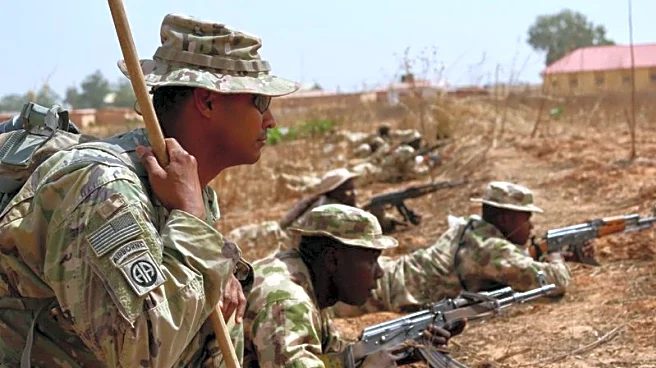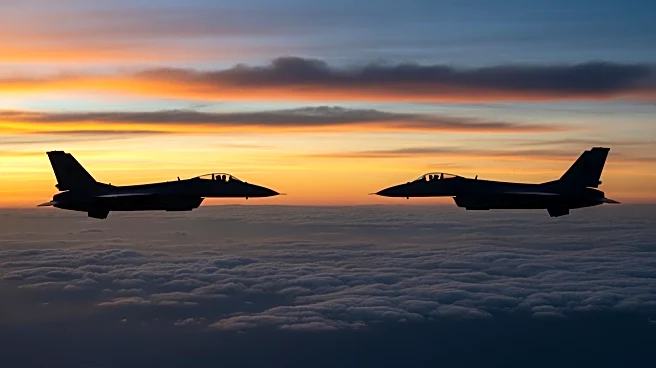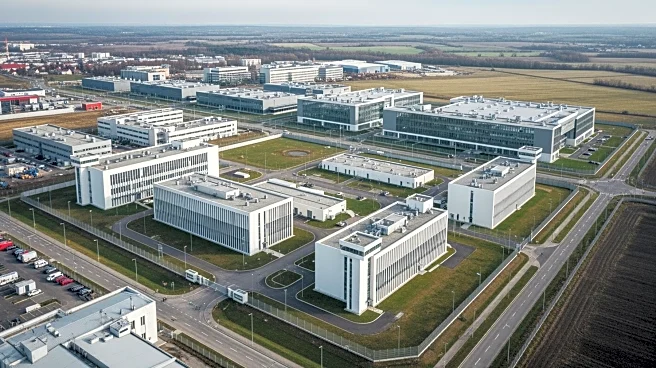What's Happening?
The United Nations Security Council is set to vote on a U.S.-led proposal for a stabilization force and interim governance in Gaza. The plan, part of President Trump's 20-point peace initiative, aims to establish
a transitional governing body and an international stabilization force. Despite objections from Israel and counter-proposals from Russia and China, the vote is expected to pass. The proposal seeks to demilitarize Gaza and provide a pathway to Palestinian self-determination, but faces criticism from Israel's Prime Minister Benjamin Netanyahu, who insists on the disarmament of Hamas.
Why It's Important?
The vote on the stabilization force represents a significant step in addressing the ongoing conflict in Gaza. The proposal's passage could lead to increased international involvement in the region, potentially altering the balance of power and impacting Israeli-Palestinian relations. The plan's focus on Palestinian self-determination may influence future peace negotiations and regional stability. However, Israel's opposition and concerns about sovereignty highlight the challenges in implementing such a plan, with potential implications for U.S.-Israel relations and broader geopolitical dynamics.
What's Next?
If the proposal passes, the stabilization force could be deployed as early as January, with international participants potentially including Turkey and Qatar. The implementation of the plan will require careful coordination among participating nations and may face resistance from local factions. The success of the initiative will depend on its ability to address security concerns and facilitate meaningful progress towards peace. Ongoing diplomatic efforts and negotiations will be crucial in navigating the complex political landscape.
Beyond the Headlines
The proposal raises questions about the role of international forces in conflict resolution and the balance between sovereignty and intervention. The plan's emphasis on Palestinian statehood reflects broader debates about self-determination and the future of the Israeli-Palestinian conflict. The involvement of multiple nations in the stabilization force underscores the importance of multilateral cooperation in addressing global challenges.









